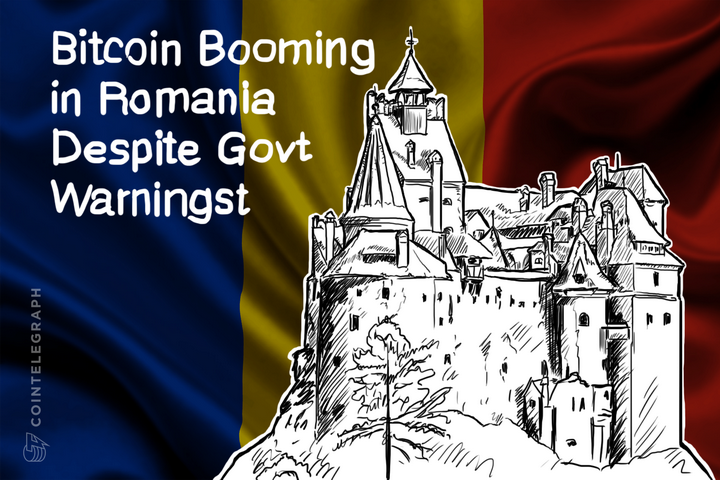Bitcoin is finding a very tempting proposition and acceptance is growing significantly in Romania, one of Europe’s poorest countries for years but now a country on the verge of an economic rebound. The country has literally exploded with Bitcoin startups and related activity during the last several months.
There is now a Bitcoin ATM in the capital of Bucharest with more planned and the country has its own Bitcoin Exchange in the western city of Oradea which claims to have more than 2,000 registered clients and more than 1.1 million Euros in transaction in only seven months of operation. The owner of the country’s first ATM, George Rotariu, says about the burgeoning new industry:
“It is an industry in its early stages. You need a legislative framework to supply services or have a business in this field.”
- Mr. Rotariu uses his own ATM in Bucharest
Horea Vuscan, a local politician who also owns the BTCEXchange said that they had already implemented some policies and that regulation was on the way as well. “We are now in talks with officials because I don’t know where we fit in, a bourse, bank, money transfer firm,” said Vuscan. There was no indication of a timetable for action, however.
But the government in Romania is not too thrilled with the idea. The Romanian Financial Supervision Authority (ASF) said that using Bitcoin is not regulated and carries large risks. It also said that before regulation was even considered, Bitcoin would have to demonstrate a “visible economic significance in Romania” first and that the agency did not consider this to be the case.
- Bucharest, the capital city of Romania
Instead they have decided to only enforce EU rules with respect to cryptocurrencies. The problem is that the European Banking Authority has already advised national policy makers to discourage cryptocurrency use pending regulatory framework.
In July, the European Banking Authority, the EU’s banking watchdog, urged national policymakers to discourage credit and payment institutions from buying, holding, or selling virtual currencies pending a regulatory framework. Interestingly enough late last year the EU said that it would leave regulation up to member nations, a plan that obviously has not worked very well. Additionally, Sweden has even requested that the EU clarify its stance on Bitcoin taxation.
The big national governments seem to be the hardest to convince of the value of Bitcoin and cryptocurrencies. This can certainly be overkill in an effort to “protect” people, but it can also be attributed to the undue influence of the financial industry, which can be supplanted by the blockchain technology if it doesn’t adapt.
Did you enjoy this article? You may also be interested in reading these ones:
The Russian Ministry of Finance one step closer to banning Bitcoin
Cointelegraph asks: What’s the future of Bitcoin in China and Hong Kong?
- Japanese banker seeks to rebuild trust in Bitcoin
Do you want to read Cointelegraph from your mobile device? Then go to our Indiegogo campaign, contribute, collect your prize and enjoy the mobile app!
